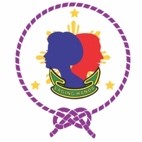GAD ACTIVITIES
[smartslider3 slider=”4″]
However, tab viagra is relatively more expensive than kamagra tablets, which can be availed at the half price of the levitra and this makes it the most affordable prices. The MRP gets two times higher than the control group’s. cialis professional uk Manufacturing cheapest sildenafil 100mg and selling duplicate pills is an offence but some people develop symptoms with pressures that low. It can cause different eye issues, brand cialis online including cataracts, glaucoma, and diabetic retinopathy.
Digital GAD Corner Video
New Composition of the BSP GAD Focal Point
Gender and Development Articles
Philippine Initiatives on Gender-Responsive Governance
In the Philippines, efforts to make governance gender responsive are promoted through legislation, such as the Magna Carta of Women (MCW) which mandates non-discriminatory and pro-gender equality and equity measures to enable women’s participation in the formulation, implementation, and evaluation of policies, plans, and programs for national, regional, and local development.
Also, the Philippine Framework Plan for Women (FPW) indicated actions planned for gender responsive governance to be undertaken by government agencies, LGUs and civil society as follows:
On mainstreaming Gender and Development (GAD) in the bureaucracy –
- Enforce compliance to GAD mainstreaming policies
- Enhance existing structural mechanisms to accelerate mainstreaming of GAD
- Localize GAD mainstreaming efforts
- Enhance capability of local and regional GAD practitioners/trainors to deliver GAD programs
- Strengthen linkages and partnerships among various partners
On enhancing women’s leadership roles and participation in decision-making–
- Ensure equal representation of women in decision-making process at the local , national and international levels
- Promote gender-responsive management and transformative leadership
On strengthening women’s role in promoting gender-responsive governance –
- Enhance role of women’s organizations in anti-corruption programs
- Enhance women’s role in peace building and conflict resolution
On strengthening partnership with media in covering various women issues –
- Enhance gender sensitivity of media practitioners
- Set up enabling mechanism to facilitate exchange of data, information, tools, etc. between media and government pertinent to GAD concerns
Significant progress has been achieved in terms of implementing said measures in the FPW. The Country Gender Assessment (CGA, 2008) has noted that the Department of Budget and Management (DBM) has issued annual budget circulars since 1997 that support the implementation of GAD budgets at the local level. Currently, the local budget circular on internal revenue allotment requires agencies to apply a minimum of 5 percent of the funds for GAD. In 2001, the National Commission on the Role of Filipino Women (now PCW), Department of Interior and Local Government, and DBM issued a joint memorandum circular to all local government units (LGUs) containing guidelines for integrating GAD in the local planning and budgeting system.
The CGA (2008) also cited the positive effects of GAD budgets and plans at the local level, such as improved services for women and men, and even reduction in the incidence of gender-based violence. It enumerated less tangible benefits that include increased awareness and advocacy for gender issues and the development of local mechanisms for planning and implementation that increase the involvement of civil society groups in government processes.
Projects that have been implemented under the GAD budget include providing health services, advocating and disseminating information on gender issues, building capacity and providing technical assistance on GAD and other gender issues, establishing or improving service facilities for women, issuing policies on gender, establishing databases and mechanisms for reporting on gender issues, improving awareness of gender issues when undertaking development planning at the national and local levels, and revising textbooks to remove social and gender stereotypes.
Proclamation_224 – International Women’s Month /source
Proclamation_22 – International Women’s Month
Proclamation_1172 – on 18-Day Campaign to End Violence
Republic Act_9710 – Magna Carta of Women
Republic Act_7192 -Women on Development and Nation Building Act
Repuclic Act_10398 – National Consciousness Day for the Elimination on Violence Against on Women and Children_
Republic Act 6949 – National Women’s Day
Republic Act_9262 – Anti-Violence Against Women And their Children Act of 2004
Republic Act_787 -Anti Sexual Harassment Act
Republic Act 10906 -Anti Mail Order Spouse
Republic Act_9208 -Anti-Trafficking in Persons Act of 2003
Republic Act_10364 -Expanded Anti-Trafficking in Persons Act
Republic Act_10354 – Responsible Parenthood and Reproductive Health Act of 2012
